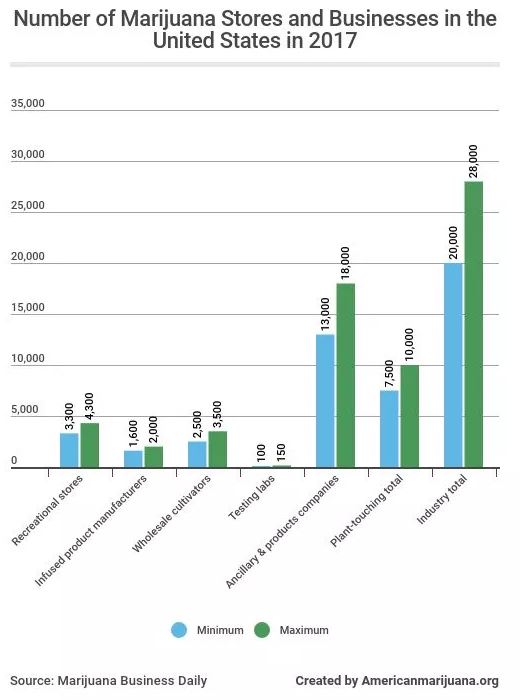
Photo|Josiah Weiss
Bianka Anguiano| April 26, 2020
Edited by: Krystal Tso
The weed world is a difficult and expensive one to jump into. The cost of opening a dispensary or any business that directly involves touching cannabis can cost upwards of $150k. Achieving this can be incredibly difficult, especially for people of color (POC). Confusing laws and regulations, along with expensive applications and permits, are added obstacles to an already complicated industry. However, besides these potential setbacks there are other ways to break into the cannabis space without the need to dish out such large sums money or go through the hassle of dealing with stringent regulations and ever-changing weed legislation.
Ancillary marijuana businesses are businesses that support or are related to the cannabis industry but don’t involve actually “touching the plant”. This path offers an alternative for anyone to join the industry by converting their current skills into a business which can provide a service or product in this field. Photography, food, advertising, security, yoga, pharmaceuticals, packaging, and any other trade that involves supporting the marijuana market without touching the plant are examples of existing ancillary services. In 2017, ancillary marijuana businesses made up about 65% of the cannabis industry and this number will only continue to grow as more states proceed to legalize the use of marijuana.

The benefits outweigh the costs in opening an ancillary service or business as opposed to a “plant touching” business. Applications, permits, and regulations not only make it very costly but also turning a profit in this industry is tough. As a result, many entrepreneurs and business owners naturally go to investors or banks for financial support. However, as marijuana remains a schedule one drug and federally illegal, banks and investors are hesitant to enter this market while investors that choose to invest their money do so knowing there is a huge risk of federal legal trouble in addition to losing their money. Ancillary businesses have less regulations, are not as costly to open and operate, and are not subject to the same federal laws as those considered as “plant touching” businesses. This makes these types of ventures more attractive to investors and an ideal business for entrepreneurs to open.
There are a variety of ancillary businesses and services in all different aspects of the  marijuana market, and people have converted their current skills and knowledge into a service that supports this industry. Pam Chotiswatdi, for example, is taking her background in education to teach the public, in order to do her part in breaking social stigmas surrounding cannabis, through her website CannabisCloset.. Pam is also the Administrator and Community Education Director at the Long Beach Cannabis Association and works in HR operations for a few cannabis businesses.
marijuana market, and people have converted their current skills and knowledge into a service that supports this industry. Pam Chotiswatdi, for example, is taking her background in education to teach the public, in order to do her part in breaking social stigmas surrounding cannabis, through her website CannabisCloset.. Pam is also the Administrator and Community Education Director at the Long Beach Cannabis Association and works in HR operations for a few cannabis businesses.
Ophelia Chong also runs a successful ancillary business, called StockPot Images, which is  the first stock-photo agency to specialize exclusively in cannabis-related imagery, in addition to being the founder of Asian Americans for Cannabis Education (AACE). She noticed the need for stock photos in the cannabis industry, took her skills in photography, and offered a solution with StockPot Images, which is now the go-to website for marijuana stock photos. The AACE is an organization that Ophelia created in order to promote the industry to APIs (Asian Pacific Islanders) and curve the negative “stoner” stigma. Ophelia’s knowledge and experience paved the way for her latest venture, a partnership with The Bevel Group, which is a vertical marketing agency for cannabis brands.
the first stock-photo agency to specialize exclusively in cannabis-related imagery, in addition to being the founder of Asian Americans for Cannabis Education (AACE). She noticed the need for stock photos in the cannabis industry, took her skills in photography, and offered a solution with StockPot Images, which is now the go-to website for marijuana stock photos. The AACE is an organization that Ophelia created in order to promote the industry to APIs (Asian Pacific Islanders) and curve the negative “stoner” stigma. Ophelia’s knowledge and experience paved the way for her latest venture, a partnership with The Bevel Group, which is a vertical marketing agency for cannabis brands.

Ancillary services and businesses constitute more than half of the cannabis industry by providing vital services and products that are essential in supporting “plant touching” businesses. Attaining capital is also more accessible with ancillaries, due to lenient regulations and laws, making it an enticing investment for venture capitalists and an attractive business model for entrepreneurs. Women are currently running successful ancillary businesses in different types of markets that reflect their expertise, and ladies, you can too! By combining your skills, knowledge, and love of cannabis into a service that supports the marijuana market, you can be involved in a successful business that you can stand behind.
Do you have an idea? Not sure what you are good at? Drop us a line here for any help, comments or questions.